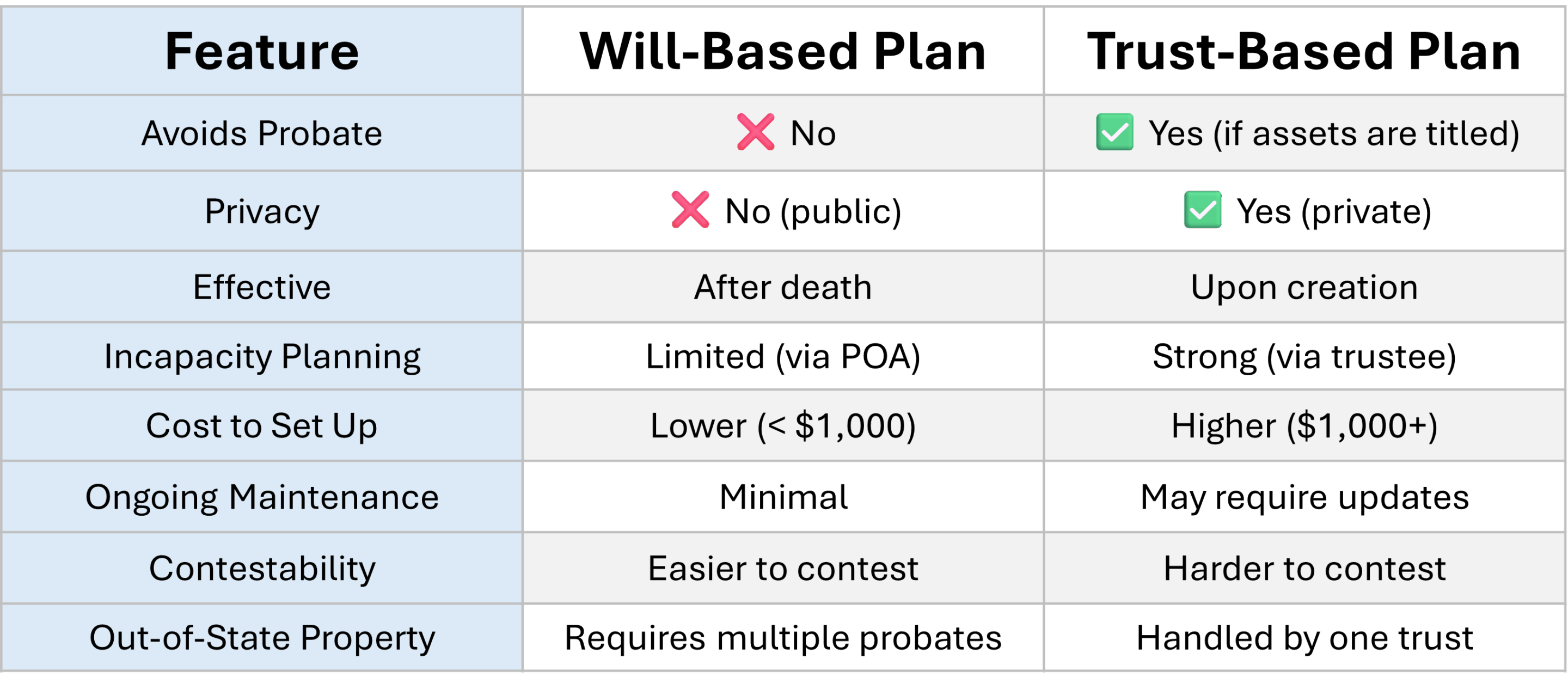Both wills and trusts provide important benefits for protecting your assets, but the best choice varies based on your overall estate planning objectives. This guide outlines the key features of will-based and trust-based plans to help you make an informed decision that aligns with your priorities.
Will-Based Estate Plans
A will-based estate plan uses a last will and testament as the primary document to direct the distribution of your assets after death. Wills are generally straightforward and cost-effective to create, making them a practical option for many; however, they must go through the probate process (as explained further below).
Trust-Based Estate Plans
A trust-based estate plan centers around a revocable living trust, which holds legal title to your assets during your lifetime and provides instructions for distribution after death. When properly funded, a trust can help avoid probate, maintain privacy, and allow for more seamless management of assets during incapacity.
What Is Probate, and How Do Wills and Trusts Differ?
Probate is the court-supervised process of validating a will, settling debts, and distributing assets. It can be time-consuming, costly, and public.
- Wills are subject to probate. After death, the will must go through probate before assets can be distributed. This may delay inheritance and incur legal fees.
- Trusts avoid probate. Assets placed in a revocable living trust can be transferred to beneficiaries without court involvement–saving time, money, and keeping matters private.
Supporting Documents Used with Both Plans
Both estate plans typically include supporting documents such as powers of attorney, which authorize someone to handle your financial affairs, and advance healthcare directives, which outline your medical and end-of-life preferences. Together, these ensure comprehensive planning for asset management and decision-making.
Summary of Key Differences
When to Consider Each Option
Will-Based Plans are suitable for those with simple estates, few beneficiaries, and minimal privacy concerns.
Trust-Based Plans are ideal for those seeking privacy, avoiding probate, planning for incapacity, or owning property in multiple states.
Still unsure whether a will-based or trust-based plan is right for you? Our team is here to assist. Schedule a free consultation to get started and receive personalized guidance tailored to your values and estate planning needs.








